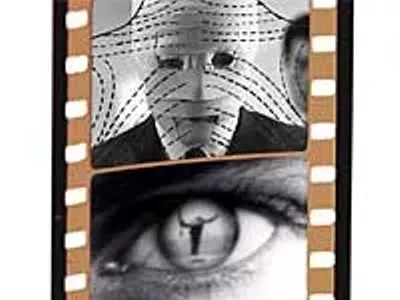
Audio By Carbonatix
[
{
"name": "GPT - Leaderboard - Inline - Content",
"component": "35519556",
"insertPoint": "5th",
"startingPoint": "3",
"requiredCountToDisplay": "3",
"maxInsertions": 100,
"adList": [
{
"adPreset": "LeaderboardInline"
}
]
}
]
Jonathan Safran Foer was 25 years old when his debut novel, 2002's Everything Is Illuminated — an inventive and ambitious fictionalized chronicle of the search for his European roots — lit up the literary world. An avalanche of commendation accompanied the book, with rapturous reviews like the one in The New York Times that dubbed it a "work of genius" and anointed its author as the next literary messiah. A host of established authors lined up to chirp his praises, including John Updike, Joyce Carol Oates and Salman Rushdie.
Predictably, the party didn't last. As time passed the hyperbole waned and Foer's Extremely Loud and Incredibly Close received a much more balanced reception upon its 2005 release. Detractors accused him of insincerity and excess sentimentalism. The Chicago Tribune wrote that the new novel is "Extremely manipulative and incredibly cloying." Particularly troublesome to some was its subject matter — the book's precocious 9-year-old narrator Oskar Schell grapples with the death of his father in the World Trade Center. Naysayers claimed the theme too sensitive, the technique too contrived. But no matter what hubris or pretension critics may ascribe to him, Foer is exceedingly humble in conversation, seeming to be genuinely awed by any adulation that comes his way. He's also eager to face the public, equally willing to take kisses or slaps, as he tours the country reading passages from Extremely Loud.
Foer is most jazzed by the unexpected responses he finds at these meet-and-greets: "I can't tell you the times I've had have people explain things to me about my books, point out allusions that I wasn't aware of when I wrote it."
The relationship between author and reader can be an intimate one, with people forming very personal connections and sometimes their own understanding, which the author embraces.
"Books become richer the more people read them, meaning is applied to them and more interpretations build up, and getting to hear some of that is really great for me," he says. "You sit in a room, and never really imagine anybody reading what you write. It's a very solitary thing."
Another pleasant thrill of the reading tour is the array of people who attend, in defiance of demographic models, or the conventional image of the ideal reader.
"When I started, I assumed very foolishly that the only people who would like something I wrote were people like me, that it would appeal to a twentysomething Jewish New Yorker," he says. "That reminds me that books aren't about the things they seem to be about, they're not about what's going on the surface, but about the experience."
Foer's work is structurally creative, with flashbacks within flashbacks, long letters, blank pages and even in the conclusion of Extremely Loud, a flip book — he uses devices that can't be effectively re-created live.
But that's not to say his readings are without their own merit. And Foer says he has to resist the temptation to slip into character or turn the readings into performance pieces.
"When people try to do a literal translation — when doing a reading or even making a movie — it just doesn't work. I'm very undramatic," Foer laughs.
The writer doesn't want to spoil the simple joy of public reading either: "There's so much about readings that are potentially bad, like once you hear somebody read it's hard not to hear in that voice, so I try to create a conversation instead."
Of course, lasting images are a consequence when novels are adapted into other media, and Everything Is Illuminated became a movie starring Elijah Wood in 2005. Foer described the process of seeing his work become a film as "weird," an experience from which he needed distance.
"I think it would have been a mistake to get too involved, if for no other reason than I'm not a filmmaker. I couldn't add much even if I wanted to. I never started any of this to get into movies. I wanted to write books."
Foer understands the interactive nature of art is on a heightened schedule these days — or at least the feedback loop is quicker — and that he simply cannot control what becomes of his work once it's presented. He claims he doesn't read his reviews or spend much time considering what's said of him. It's disconnection by design. "It's OK if from the beginning that's was what you wanted — to be somebody who reads blogs."
This mild estrangement from the clattering sound of the pop herd is essential for Foer. He relies so heavily on his imagination, to reject the rattle of other voices is to better hear his interior one. Seems the writer's life can be a lonely one — all the more reason to get out there and face the public.
7-8:30 p.m. at Berkley High School Auditorium, 2325 Catalpa, Berkley; 248-968-1190. The free event is sponsored by the Book Beat.
Corey Hall is a freelance writer. Send comments to letters@metrotimes.com




